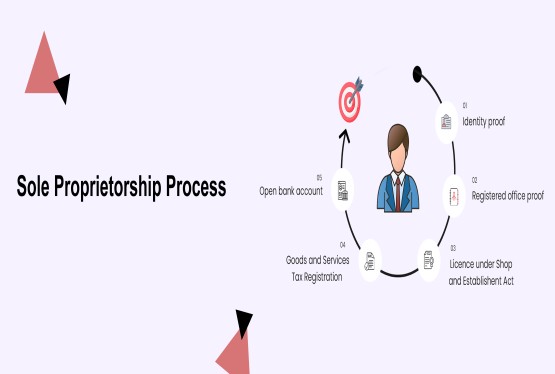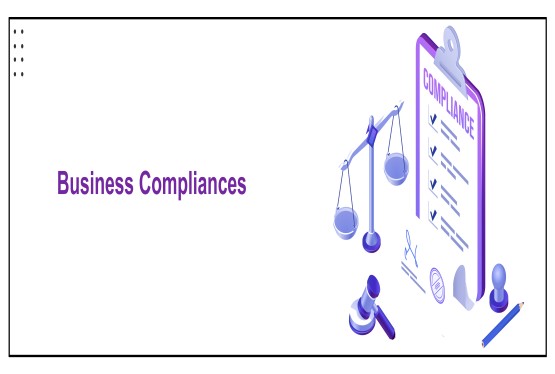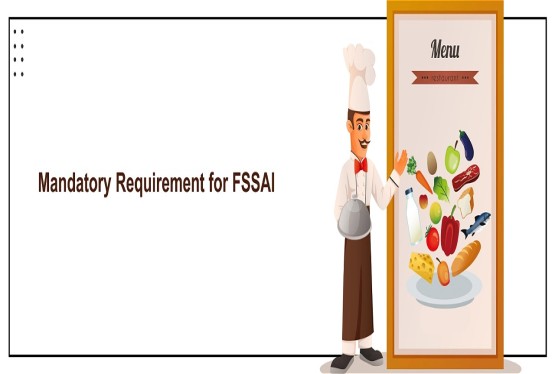The Agricultural and Processed Food Products Export Development Authority (APEDA) is a statutory body established by the Government of India in 1985 under the APEDA Act, with the primary objective of promoting and developing the export of scheduled agricultural and processed food products. Tasked with enhancing India's global agricultural trade footprint, APEDA plays a pivotal role in facilitating exporters through a structured framework of financial assistance, technical guidance, and market intelligence.
Products listed as "scheduled products" under the APEDA Act fall within its regulatory purview, and registration under APEDA is mandatory for exporters dealing in these specified goods. Beyond legal compliance, APEDA Registration opens the gateway to a host of benefits including eligibility for export incentives, participation in international trade fairs, access to training programs, and support for quality improvement initiatives.
In an era where the demand for organic, traceable, and high-quality agricultural products is rapidly growing, APEDA Registration has become an essential step for Indian exporters looking to establish and expand their track in the worldwide market. In this article we are going to discuss the objective, functions and process of online APEDA Registration.
Objective of APEDA
The Agricultural and Processed Food Products Export Development Authority (APEDA) was established with the main objective of promoting the export of scheduled agricultural and processed food products from India, as defined under the APEDA Act of 1985. This objective is achieved under the supervision and regulatory framework of the Central Government, which lays down the rules and ensures their proper implementation through APEDA. To fulfill its mandate, APEDA undertakes several key functions:
-
Export Promotion: Assisting exporters through participation in trade fairs, buyer-seller meets, and brand development initiatives.
-
Financial Assistance: Providing subsidies and incentives to exporters for infrastructure development, quality certification, and packaging improvements.
-
Capacity Building: Organizing training programs, seminars, and workshops to educate exporters on international standards and procedures.
-
Regulatory Compliance: Ensuring scheduled products meet global quality and safety standards to boost credibility in foreign markets.
Through these efforts, APEDA plays An important role in enhancing India's agricultural export potential and ensuring that Indian products remain competitive, reliable, and sustainable in the international marketplace.
Functions of APEDA Authorities
The Agricultural and Processed Food Products Export Development Authority (APEDA), constituted under the APEDA Act, 1985, is entrusted with a wide range of statutory functions aimed at facilitating, regulating, and promoting the export of scheduled products as notified under the Act. In accordance with the directives of the Central Government, APEDA is vested with the following responsibilities and powers:
-
Promotion of Export-Oriented Production: To promote the development and export of scheduled products through strategic interventions and financial assistance schemes.
-
Standardization and Specification: To lay down standards and specifications for scheduled products to ensure they meet international quality and safety norms.
-
Exporter Registration: To register individuals or entities as exporters of scheduled products upon receipt of the prescribed fee, thereby enabling them to access APEDA benefits and schemes.
-
Packaging and Marketing Enhancement: To improve the methods of packaging and marketing of scheduled products, ensuring global competitiveness and appeal.
-
Inspection and Quality Control: To conduct inspections at slaughterhouses, processing plants, storage facilities, and other relevant premises to ascertain the quality and hygienic standards of meat and meat products, among other scheduled goods.
-
Training and Capacity Building: To organize training programs and capacity-building initiatives in various aspects of the industry related to scheduled products, with the aim of upskilling stakeholders and improving export readiness.
-
Industrial Development and Research: To support the development of industries dealing with scheduled products by conducting surveys, feasibility studies, and research activities, and by providing participation assistance through joint ventures or subsidies.
-
Data Collection and Publication: To collect statistics pertaining to the production, processing, packaging, marketing, and export of scheduled products from relevant stakeholders, including factory owners and establishments, and to publish such data as may be necessary for regulatory or promotional purposes.
APEDA’s mandate encompasses a diverse range of agricultural and processed food products, including but not limited to fruits, vegetables, meat and poultry products, dairy goods, bakery and confectionery items, honey, jaggery, cocoa products, floriculture, pickles, papads, chutneys, and other value-added consumables. By carrying out these statutory functions, APEDA ensures regulatory compliance, export facilitation, and sustained growth of India’s agri-export sector.
Documents Required for APEDA Registration
The following documents must be furnished by the applicant for obtaining Registration-Cum-Membership Certificate (RCMC) under the Agricultural and Processed Food Products Export Development Authority (APEDA):
For All Exporters:
-
Duly Signed Application Form: As prescribed by APEDA for RCMC registration.
-
Import-Export Code (IEC): Issued by the Directorate General of Foreign Trade (DGFT).
-
Bank Proof (Any One of the Following):
-
Bank Certificate duly signed by the concerned bank authorities; or
-
Cancelled Cheque bearing pre-printed name and account details of the firm.
-
Bank Account Statement: Statement for the last two months of the firm’s operative account.
-
GST Registration Certificate: Copy of the valid Goods and Services Tax (GST) Registration.
Additional Documents for Manufacturer Exporters
-
FSSAI Central License: Issued by the Food Safety and Standards Authority of India for manufacturers of food products.
-
DIS/SIA Certificate: Certificate from the Department of Horticulture for scheduled products governed under the APEDA Act.
-
Certificate of Incorporation / Partnership Deed: Certificate of Incorporation in case of a company, or partnership deed if registered as a partnership firm.
-
No Objection Certificate (NOC): NOC from the Pollution Control Board of the respective State/Union Territory, where applicable.
-
MSME Registration Certificate: If registered under the Micro, Small and Medium Enterprises (MSME) Development Act, 2006.
-
Halal Certification: Required where the products proposed to be exported are governed by Halal standards and the importing country mandates the same.
Online Registration Process for APEDA
With effect from 1st August 2015, APEDA has enabled a completely online system for the issuance of Registration-Cum-Membership Certificate (RCMC) using Digital Signature Certificates (DSCs) to ensure transparency and ease of doing business. The step-wise online registration procedure for APEDA is as follows:
Step 1: Visit the APEDA Portal
To initiate the APEDA registration process, the applicant must first visit the official website of the Agricultural and Processed Food Products Export Development Authority at https://apeda.gov.in. On the homepage, the exporter should click on the “Register as Member” tab, which will redirect them to the online registration form required for obtaining the Registration-Cum-Membership Certificate (RCMC).
Step 2: Enter Basic Details
In the next step, the applicant is required to fill in essential details, including the Import-Export Code (IEC), a valid email ID, and an active mobile number. After entering these details accurately, the applicant must click on the "Submit" button to proceed with the registration process.
Step 3: Verify OTP
Upon submission of the basic details, a One-Time Password (OTP) will be automatically sent to the registered email ID and mobile number provided by the applicant. This OTP must be entered on the verification screen to authenticate the contact information. Once the OTP is correctly entered, the applicant should click on the "Submit" button to move forward in the registration process.
Step 4: Complete Online Application
After successful verification of the OTP, the applicant must proceed to complete the online registration form by entering all the necessary business and contact information. Along with the form, the required supporting documents must be uploaded in the prescribed file formats namely JPEG, PDF, or PNG ensuring that each document is clear, legible, and compliant with the specified guidelines.
Step 5: Save and Resume (Multi-Session Enabled)
The online application process is designed to be flexible and can be completed in multiple sessions, allowing applicants to save their progress and return later. By using the previously received OTP, the applicant can log back in and continue filling out the form until the final submission. All entered information remains editable and can be modified as needed, provided that the final payment has not yet been made.
Step 6: Make Online Payment
The registration fee for obtaining the APEDA RCMC is Rs.5,000, exclusive of applicable taxes. Applicants can make the payment through multiple modes, including Credit Card (MasterCard or Visa), Debit Card (MasterCard or Visa), or by submitting a Demand Draft drawn in favour of “APEDA,” payable at the respective city office.
Step 7: Application Number Generation
Upon successful completion of the payment process, an Application Number will be automatically generated by the system. This unique number serves as a reference ID and must be carefully retained by the applicant, as it will be required for tracking the application status and for all future correspondence related to the APEDA registration
Step 8: Receipt of Login Credentials
Once the Registration-Cum-Membership Certificate (RCMC) is issued, the login credentials will be sent to the applicant’s registered email ID. These credentials can be used to access the exporter’s account by clicking on the “Exporter Login” tab available on the APEDA website, enabling the applicant to manage their profile and download the issued certificate.
Step 9: Track Application Status
To monitor the status of the registration, the applicant can use the “Track Application” link available on the APEDA website. By entering the Import-Export Code (IEC) and the generated Application Number, the applicant can easily track the progress of their application in real time.
Step 10: Addressing Deficiencies
In case any discrepancies or shortcomings are identified in the submitted application, the exporter will be duly notified by APEDA. The applicant is then required to address the issues by making the necessary corrections and re-submitting the relevant documents through the online portal to ensure successful processing of the registration.
Step 11: Final Approval and Certificate Download
Once the application is reviewed and receives final approval from the APEDA authorities, the Registration-Cum-Membership Certificate (RCMC) will be officially issued. The exporter can then log in to their APEDA account and download the certificate from the “View RCMC Certificate” section available under the RCMC Menu on the portal.
Conclusion
The APEDA registration process has been updated through a fully digital platform, making it more efficient, transparent, and user-friendly for exporters of agricultural and processed food products. By following the step-by-step online procedure from submitting basic details and uploading required documents to making the payment and tracking application status exporters can conveniently obtain the Registration-Cum-Membership Certificate (RCMC) from the comfort of their office. This registration not only facilitates compliance with export regulations but also enables exporters to access various financial assistance schemes, promotional support, and global market opportunities provided by APEDA.
Frequently Asked Questions
Q1. What is APEDA registration?
Ans. APEDA registration refers to obtaining the Registration-Cum-Membership Certificate (RCMC) from the Agricultural and Processed Food Products Export Development Authority. It is mandatory for exporters of scheduled products under the APEDA Act.
Q2. Is APEDA registration mandatory for all exporters?
Ans. No, it is mandatory only for exporters dealing with scheduled products listed under the APEDA Act. However, voluntary registration is also encouraged to avail various benefits.
Q3. What is the validity of the APEDA RCMC?
Ans. The RCMC issued by APEDA is generally valid for five years from the date of issue, subject to compliance with the prescribed conditions.
Q4. What are the scheduled products under APEDA?
Ans. Scheduled products include a wide range of agricultural and processed food items such as fruits, vegetables, meat products, dairy, floriculture, cereals, pulses, and organic products. The full list is available on the APEDA website.
Q5. Is there any registration fee for APEDA?
Ans. Yes, the registration fee is Rs.5,000/- (exclusive of taxes), which can be paid via credit/debit card or demand draft.
Q6. What are the required documents for APEDA registration?
Ans. Key documents include:
-
Import-Export Code (IEC)
-
Bank certificate or cancelled cheque
-
Bank statement (last 2 months)
-
GST certificate
-
FSSAI license (for manufacturers)
-
Certificate of incorporation or partnership deed
-
NOC from Pollution Control Board (if applicable)
Q7. Can the application be submitted offline?
Ans. No, the APEDA registration process is completely online since 1st August 2015. All documents and applications must be submitted via the APEDA portal.
Q8. How can I track the status of my APEDA application?
Ans. You can track your application using the “Track Application” link on the APEDA website by entering your IEC and Application Number.
Q9. What happens if there is an error or missing document in my application?
Ans. In case of any deficiencies, APEDA will notify the applicant, who must correct and re-submit the application/documents online.
Q10. What benefits do I get after APEDA registration?
Ans. Registered exporters can:
-
Avail financial assistance under APEDA schemes
-
Participate in international trade fairs and buyer-seller meets
-
Get training and export promotion support
-
Access APEDA’s export data, quality standards, and guidelines












_crop10_thumb.jpg)





_crop10_thumb.jpg)




























-Form_crop10_thumb.jpg)

_crop10_thumb.jpg)























_learn_crop10_thumb.jpeg)
































_crop10_thumb.jpg)

_crop10_thumb.jpg)





















_crop10_thumb.jpg)















_for_Foreign_Directors_learn_crop10_thumb.jpeg)




_Act,_2015_learn_crop10_thumb.jpg)



































_learn_crop10_thumb.jpg)








































